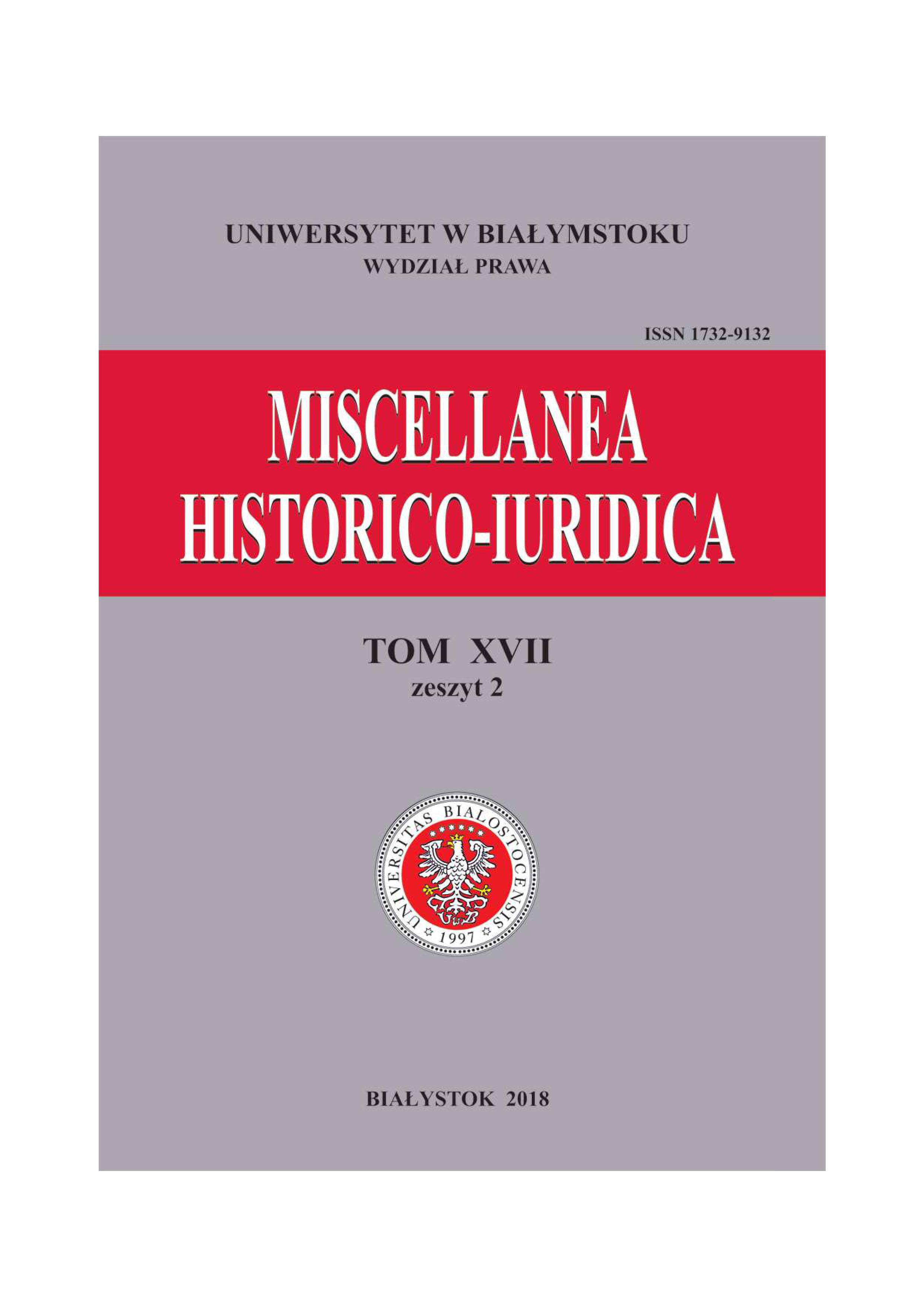Kilka uwag na marginesie Tit.Ulp. 20.16
A few remarks in the margin Tit. Ulp. 20.16
Author(s): Renata Świrgoń-SkokSubject(s): Law, Constitution, Jurisprudence, History of Law
Published by: Wydawnictwo Uniwersytetu w Białymstoku
Keywords: slave; will; public slave; Roman law
Summary/Abstract: In Roman law, a precondition for testamenti factio activa was having freedom. In the Classic and Justinian Law the major matter that was considered while determining succession in case of death, was whether the testator was a free person. This generally does not raise major controversies. Statements of classic jurists, amongst others, refer thereto in Justinian Digests and imperial constitutions. It is not affected by the fact that in the preserved source material of Roman law, one can find a fragment from Titulae ex corpore Ulpiani, which grants public slaves the capacity to manage half of their peculium, should they have any. Such a possibility was not present for private slaves even if they possessed peculium profecticium. They also could not obtain the consent of their owner in this scope to carry out such legal action, because the ability to draw up a testament was classified in public law, not private law, which cannot be changed on the grounds of any agreements. However, this privilege is not known to Justinian law. Again, the privilege of testamentary capacity for public slaves is granted by the Byzantine emperor – Leon VI Philosopher.
Journal: Miscellanea Historico-Iuridica
- Issue Year: 17/2018
- Issue No: 2
- Page Range: 115-126
- Page Count: 12
- Language: Polish

